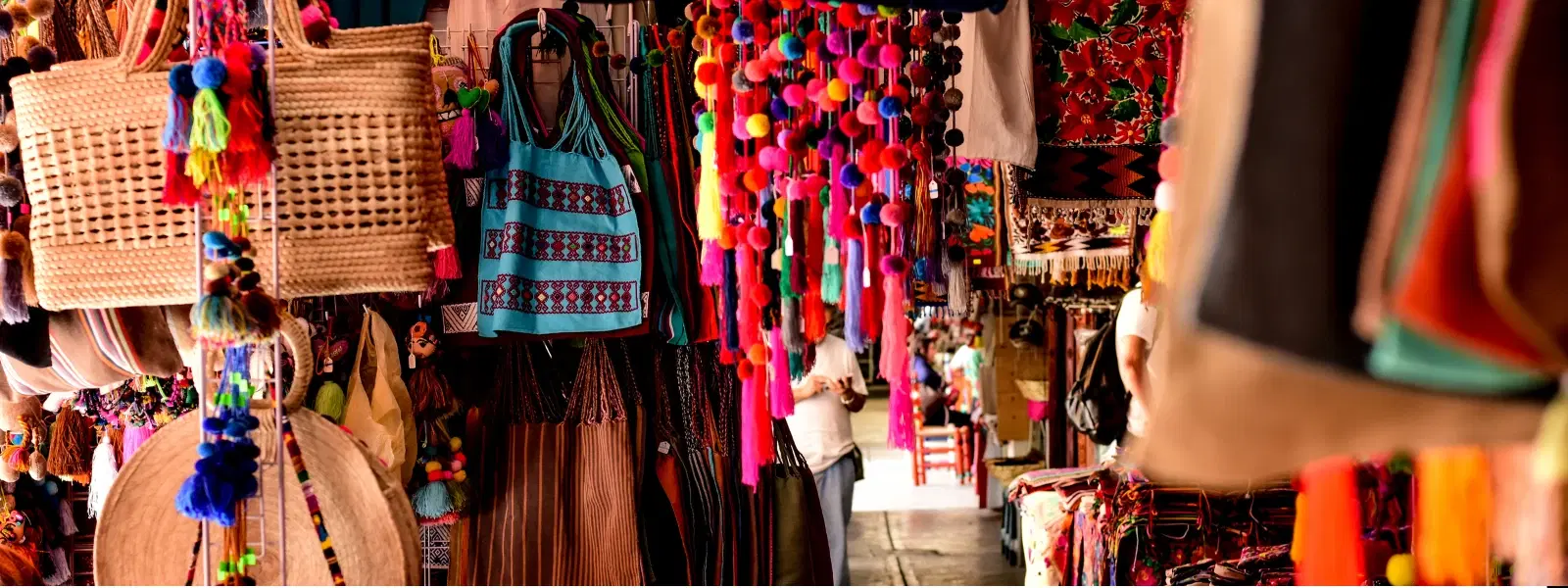
Hotels
•03 min read

Ahmedabad stands as a beacon of India’s textile heritage. Known globally as a hub for Indian fabric history, the city offers visitors an immersive journey into centuries of tradition and craftsmanship. In this blog post, we dive into frequently asked questions about the Ahmedabad textile museum visit. You will learn practical tips, gain historical insights, and discover what makes this museum a treasure trove of Gujarat textile art and cultural heritage.
Ahmedabad has long been recognized for its pivotal role in the Indian textile industry. The city’s historical connection to traditional weaving techniques and Gujarat textile art has earned it a status that continues to inspire enthusiasts and travelers alike. Its legacy lives on in every fabric and every thread, reflecting stories of craftsmanship and cultural pride.
Founded by the Sarabhai Foundation, the Calico Museum of Textiles is an outstanding institution dedicated to preserving Indian textile craftsmanship. Revered as one of the largest textile museums in India, it houses a diverse and invaluable collection that highlights the evolution of fabric art. A visit here is like walking through a living history of textiles.
The museum boasts a vast collection that includes sacred textiles, Jain manuscripts, and exquisite Indian miniature paintings. Each artifact plays a crucial role in narrating the story of Indian fabric history, offering insights into religious, cultural, and artistic narratives that have shaped the region over centuries.
One of the standout features of the museum is its focus on handloom exhibits. These displays highlight the intricate process of weaving and the traditional techniques passed down through generations. Visitors can closely observe how skilled artisans transform raw threads into exceptional works of art that reflect the vibrant spirit of Gujarat.
Beyond its historical collections, the museum is home to rare artifacts such as South Indian and sacred bronzes. The building itself is a marvel, featuring an architectural design that offers serenity and a reflective ambiance perfect for exploring the rich tales woven into every exhibit.

The museum operates on specific timings to ensure a curated experience. Guided tours are available from 10:30 AM to 1:00 PM, and it is important to book your slot in advance as visitor numbers are often limited.
Ticket prices are reasonable, with guided tours typically priced between ₹200 to ₹300 per person. Students and groups often enjoy discounts, and several special packages are available to provide a more comprehensive experience as you explore India's textile legacy.
Reaching the museum is easy. Whether you opt for public transportation or a private vehicle, you will find yourself navigating through a city steeped in history. Local landmarks near the museum provide helpful orientation, making it simple for first-time visitors to locate this cultural gem.
The museum is a gateway to understanding the evolution of Indian textile craftsmanship. Through its exhibits and detailed narratives, visitors learn about how techniques have evolved over centuries. The Calico Museum also plays a significant role in preserving traditional practices and promoting sustainable methods in fabric production.
At the heart of the collection is Gujarat's vibrancy in textile art. The exhibits reflect the interplay between traditional craft and contemporary design, highlighting collaborations with local artisans and handloom communities. This connection helps bridge the rich past with the dynamic present of India's fabric industry.
Did You Know? The Calico Museum of Textiles is not just a repository of historic textiles but also a center for research on traditional Indian weaving techniques, attracting scholars from around the globe.
The guided tour is thoughtfully designed to take you through various key sections, each exuding its own charm and historical significance. Tours typically last for about an hour, during which you are invited to learn about the nuances of traditional weaving techniques and the stories behind each artifact. Remember to check photography policies as some areas may have restrictions.

While exploring Ahmedabad, consider enhancing your cultural experience by visiting nearby attractions such as the Auto World Vintage Car Museum or Sabarmati Ashram. For a well-rounded experience, take time to enjoy local dining options and cozy accommodations that reflect the warm hospitality of the city.
The ticket price varies depending on the type of tour. Guided tours typically range from ₹200 to ₹300 per person. Advance booking is required.
The Calico Museum of Textiles in Ahmedabad is considered one of the largest and most comprehensive textile museums in India.
The museum is renowned for its unparalleled collection of historic textiles, sacred bronzes, Jain manuscripts, and its focus on preserving traditional Indian weaving techniques.
The Calico Museum of Textiles houses one of the largest collections of textiles in India, showcasing artifacts from various regions and time periods.
The museum operates from 10:30 AM to 1:00 PM for guided tours. It remains closed on public holidays and Sundays.
The Ahmedabad Textile Museum offers a unique glimpse into India's rich textile heritage, showcasing historic collections, traditional techniques, and Gujarat's vibrant textile art. A visit here is more than an educational journey; it is an opportunity to immerse yourself in the colorful tapestry of Indian fabric history and experience the true essence of traditional craftsmanship.